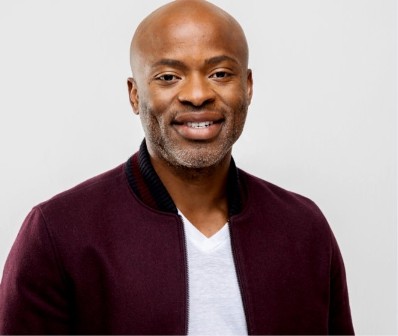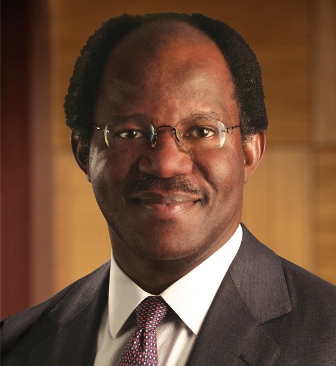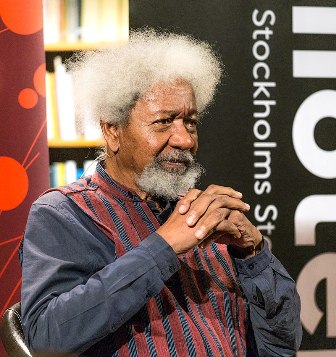Will Nigeria, Africa’s Sleeping Giant, Finally Awaken?- Dr Gbadebo Taofeek Yusuf
Nigeria, often hailed as the "Giant of Africa," stands at a pivotal crossroads. With vast natural resources and a dynamic, youthful population, the nation holds boundless potential. However, despite decades of promise, Nigeria remains tethered to a singular lifeline—oil. Since its discovery, oil has become the backbone of the economy, accounting for 90% of export earnings and 60% of government revenue. But what was once a blessing has become a burden. The country’s overreliance on oil has stunted the growth of other critical sectors such as agriculture, manufacturing, and technology. As Nigeria grapples with this reality, one pressing question emerges: Will it finally awaken and unlock its full potential before it’s too late?

With more than 60% of its population under the age of 25, Nigeria is home to one of the youngest populations in the world. This should be a driving force behind the country's development. However, millions of young Nigerians are unemployed or underemployed. In 2021, the youth unemployment rate hit 53.4%—an alarming figure for a country brimming with potential. Imagine a future where coding, robotics, and artificial intelligence are part of the daily curriculum, available to every young person from Lagos to rural areas. The time to make this a reality is slipping away. Without meaningful reforms, Nigeria risks wasting a generation of potential innovators and leaders.
Updated data on Nigerian migration trends shows significant growth in the Nigerian diaspora in key countries like the UK, U.S., and Canada.
- In the UK, over 430,000 visas were granted to Nigerians in the first seven months of 2024, which includes work, study, and family reunification categories. This surge reflects the growing demand for Nigerian talent in the UK across various sectors.
- In Canada, Nigerian immigration has continued to rise, with 18,000 Nigerians receiving permanent residency between 2018 and 2020. This upward trend shows no signs of slowing down, as Nigeria remains a top source of immigrants to Canada.
- For the U.S., the Nigerian population stands at approximately 460,000, with many excelling in fields such as medicine, technology, and education.
One of the most remarkable Nigerians who has exceled on the global stage is Chimamanda Ngozi Adichie, a literary powerhouse whose novels have captivated readers around the world. Adichie’s works, such as Half of a Yellow Sun and Americanah, explore complex themes of identity, migration, and the Nigerian experience, resonating with audiences far beyond Nigeria's borders. Her TED Talk, "We Should All Be Feminists," sparked a worldwide conversation about gender equality and further solidified her status as one of the leading contemporary voices in feminism. Through her storytelling, Adichie connects the world to Nigerian culture and challenges the single narrative often associated with Africa.

Chimamanda Ngozi Adichie
Another extraordinary Nigerian making waves abroad is John Boyega, the British-Nigerian actor who soared to international fame for his role as Finn in the Star Wars saga. More than just a talented actor, Boyega has become a vocal advocate for social justice, using his platform to champion racial equality and amplify the message of the Black Lives Matter movement. His fearless activism, combined with his artistic achievements, shows the depth of his commitment to creating meaningful change both on and off-screen. Whether through his acting or advocacy, Boyega stands as a shining example of how Nigerians continue to influence and shape global culture.

John Boyega
Similarly, Oluwatoyin Sanni, CEO of Emerging Africa Capital Group, is another financial titan whose work in investment banking is driving growth in African markets, helping to transform infrastructure across the continent.

Oluwatoyin Sanni


In the world of business and finance, Adebayo Ogunlesi is a name synonymous with success. As the chairman and managing partner of Global Infrastructure Partners (GIP), Ogunlesi has played a key role in some of the most significant infrastructure investments globally, including the acquisition of London’s Gatwick Airport. His visionary leadership in finance demonstrates the crucial role Nigerians play in shaping the economic landscape, particularly in international markets.

Adebayo Ogunlesi
Dr Ngozi Okonjo-Iweala is a globally respected economist and the Director-General of the World Trade Organization (WTO)—the first African and woman to hold this role.
Dr Ngozi Okonjo-Iweala
Finally, no discussion of notable Nigerians abroad would be complete without mentioning Wole Soyinka, the first African to win the Nobel Prize in Literature. Soyinka’s influential body of work has earned him global acclaim, with his plays and activism inspiring generations. His dedication to democracy and human rights, coupled with his literary brilliance, makes him not only a cultural icon but also a beacon of resilience and intellectual rigor. Together, these individuals highlight the immense talent and influence Nigerians continue to have on the world stage.

What Can Be Done to Reverse Brain Drain?
To bring back its brightest minds, Nigeria needs to:
- Reform its institutions to foster accountability and meritocracy.
- Create incentives for Nigerians abroad to return, such as tax breaks, improved infrastructure, and streamlined business processes.
- Address corruption by implementing stronger anti-corruption laws and building transparent systems that reward merit and hard work.
The Consequences of Inaction
The global economy is evolving at breakneck speed, and countries that don’t adapt will be left behind. Nigeria’s reliance on oil is unsustainable. If it fails to invest in science, technology, and education, it risks losing out on the opportunities that the 21st century offers. Nigeria’s brain drain has already cost the nation dearly, with 15,000 Nigerian doctors emigrating annually in search of better working conditions. And while remittances from abroad are a boost, they can’t replace the long-term value of keeping the best talent at home.
Are Nigerians Abroad Thriving Beyond Corruption
A common stereotype surrounding Nigeria is its association with corruption, a reputation that can follow Nigerians abroad. Yet, in countries with stronger institutions—such as the U.S., UK, and Canada—Nigerians often thrive in transparent, accountable systems. While isolated fraud cases make headlines (e.g., Hushpuppi), these incidents don’t define the Nigerian diaspora. Most Nigerians abroad are law-abiding citizens who excel in highly regulated fields like medicine, technology, and education. This contrast shows that corruption isn’t a cultural trait, but a symptom of weak systems. When given the right conditions—such as those found in countries with strong accountability—Nigerians demonstrate their capability and integrity. Strengthening institutions back home will give Nigerians a chance to thrive in their own country without relying on survival mechanisms like corruption.

Vocational Education: A Key to Nigeria’s Future
Nigeria’s dual-track education system, where vocational training and academic universities operate side-by-side, holds great potential. Vocational and technical education programs are meant to equip young people with practical skills for industries like agriculture, manufacturing, and technology. However, issues like outdated curricula, lack of investment, and societal stigmas surrounding vocational careers prevent these programs from reaching their full potential. Countries like China have shown how vocational education, when properly aligned with industry needs, can transform economies by closing the skills gap. If Nigeria invests more in this area, it can reduce unemployment and open new paths for young Nigerians.
Call to Action: Nigeria’s Path Forward
Nigeria has everything it needs to succeed—natural resources, a talented workforce, and a young population eager for opportunity. What’s needed now is decisive leadership and bold investment in key sectors.
Here’s what needs to happen:
- Prioritize STEM education: Ensure that science, technology, engineering, and mathematics are at the heart of Nigeria’s educational system.
- Create more innovation hubs: Support entrepreneurs and startups by fostering environments where innovation can thrive.
- Invest in renewable energy: Develop solar, wind, and other green energy sources to reduce dependence on oil.
- Strengthen vocational training: Equip young people with the practical skills they need to succeed in high-demand industries.
Conclusion: The Time to Act Is Now
Nigeria is at a crucial point. For a long time, oil wealth has been the backbone of the country’s prosperity, but it’s clear now that relying on oil alone won’t secure our future. President Bola Ahmed Tinubu has recognized the challenges ahead and is asking Nigerians to make short-term sacrifices for long-term gains.
The Dangote refinery is a huge achievement, helping to cut down our reliance on fuel imports and boosting local oil production. But while it’s a great step forward, it won’t solve all of Nigeria’s economic challenges. Oil still accounts for 90% of our export earnings, and with global demand changing and prices always shifting, depending on oil leaves us exposed. The real solution is to diversify our economy.
Look at countries like the UAE—they moved beyond oil by investing in technology, tourism, and renewable energy, turning themselves into global innovation hubs. Nigeria, with its wealth of talent and natural resources, can do the same. By focusing on sectors like technology, agriculture, and renewable energy, we can create millions of jobs, tackle youth unemployment, and bring in international talent and investment.
A thriving Nigeria—where young people are empowered, the diaspora returns to help build a country of opportunity, and innovation drives lasting growth—will only happen if we take bold action. It’s not about quick fixes but a long-term plan that taps into Nigeria’s full potential.
The world is moving fast, and Nigeria’s chance to lead Africa is slipping away. If we act now, diversify our economy, and invest in our people, we can lead the continent and secure prosperity for generations to come. Now is the time to make it happen—before this chance passes us by.

